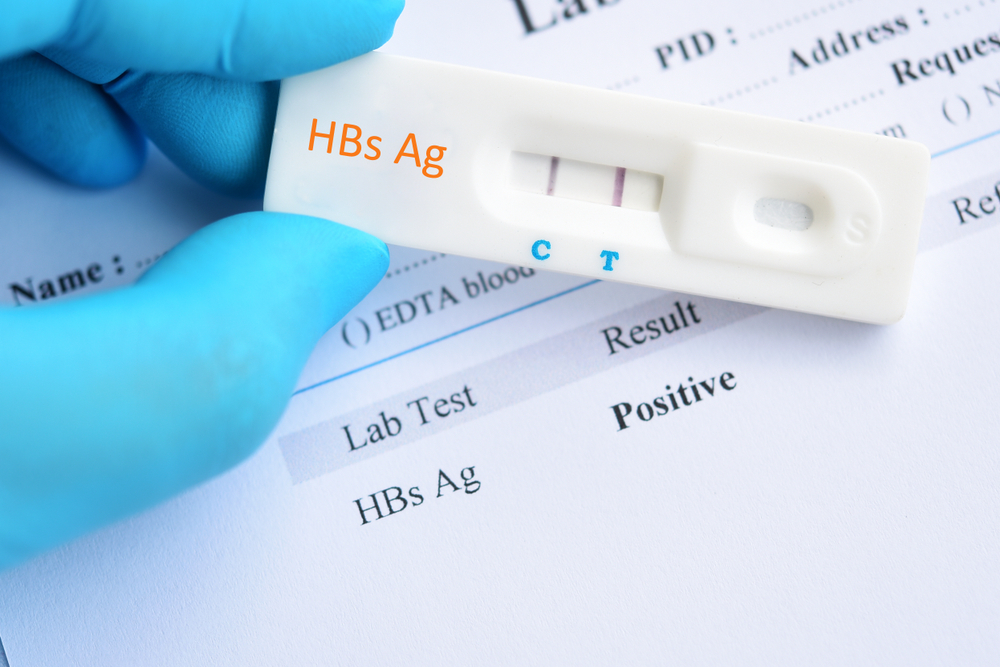Contents:
- Medical Video: Amenorrhea - Absence of Menstrual Periods, Animation
- Types amenorrhea
- Causes of amenorrhea
- When should you see a doctor?
- What will the doctor do?
- How do you deal with amenorrhea?
Medical Video: Amenorrhea - Absence of Menstrual Periods, Animation
If you are a woman, menstruation is certainly a routine thing you experience every month, unless you are pregnant or have experienced menopause. However, what if you do not have a period even if you are not pregnant and not at the age of menopause? What really happened? Do you have to feel anxious and see a doctor?
The condition in which a woman does not menstruate is called amenorrhea or amenorrhea. It's natural if you don't experience menstruation during pregnancy or after menopause. However, if you do not experience menstruation outside of these two things, this condition may be a symptom of a certain medical condition.
Types amenorrhea
Broadly speaking, there are two types of amenorrhea, namely amenorrhea primary and secondary amenorrhea. Amenorrhea Primary is a condition in which a woman has not experienced her first menstruation after 16 years or more. Young women generally start menstruation at ages 9 to 18 years, with an average age of 12 years.
On the other hand, amenorrhea Secondary is the condition when a woman does not menstruate for three cycles, even though she has had menstruation before. In general, secondary amenorrhea is more common.
Causes of amenorrhea
Primary and secondary amenorrhea can occur due to various causes. Some are natural causes, while others are caused by certain medical conditions that must be addressed. Following are some of the causes of the afternoon:
- Natural causes: usually caused by pregnancy, breastfeeding, and menopause.
- Lifestyle: exercise that is too heavy and stressful. Having too much or too little body fat can also delay or stop menstruation.
- Hormone imbalance: usually caused by a tumor in the pituitary gland or thyroid. In addition, it can also be caused by low estrogen levels or high testosterone levels.
- Medications: Usually caused by drugs such as anti-psychotics, anti-depressants, chemotherapy, and high blood pressure medications. In addition, stopping the birth control pill suddenly can also stop menstruation for several cycles before finally returning to normal.
- Physical disorders: such as structural problems in the female reproductive organs such as the presence of congenital abnormalities, tumors, or infections that occur in the uterus immediately after giving birth. In rare cases, amenorrhea can be caused due to Asherman's syndrome, which results from the formation of scar tissue in the uterus after surgery.
- Genetic abnormalities: genetic or chromosomal abnormalities such as Turner's syndrome or Sawyer syndrome, can cause amenorrhea.
When should you see a doctor?
All young women who have never had menstruation at the age of 16 should consult a doctor. In addition, young women aged 14 years and over who have not shown signs of puberty such as the growth of pubic hair and enlarged breasts, are also advised to consult a doctor.
For women who have had menstruation, menstruation that does not come for three consecutive months can be a sign that you should immediately see a doctor.
What will the doctor do?
The doctor will first ask for your medical history and do a physical examination. Prepare yourself to explain to your doctor about your usual menstrual cycle, your lifestyle, and other symptoms that you experience. Your doctor may also take a pregnancy test to ensure that you are not pregnant.
Once you are sure you are not pregnant, your doctor may advise you to undergo a series of tests such as:
- Blood tests: your doctor may check hormone levels in your body that are related to menstruation.
- Ultrasound: This imaging test is useful for seeing organs in your body such as the ovary, uterus, and checking for any abnormal mass growth.
- CT scan: this imaging examination produces a clearer picture than ultrasound. Through this examination the doctor can see more clearly whether there is a tumor or mass in your glands or organs.
How do you deal with amenorrhea?
The treatment for amenorrhea varies depending on the cause. Hormonal imbalances can be overcome by giving homon supplements or artificial hormones. Structural abnormalities may require more invasive measures such as removal of ovarian cysts or scar tissue that causes you to not menstruate.
If the cause is a lifestyle problem, your doctor will ask you to change your lifestyle, such as reducing excessive exercise and adjusting your weight. You can ask if you need to consult a nutritionist about this.
In essence, immediate treatment and compliance with treatment is the primary key. Always consult your doctor if your condition does not improve with the therapy given.












